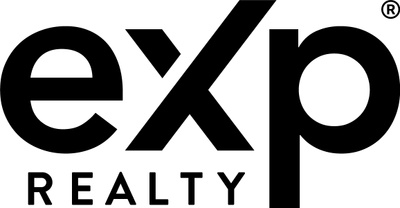
Environmental issues, one of the most significant concerns of this current era, affect various aspects of our lives. One area where their impact is particularly noticeable is the real estate market. Hazardous waste, contamination, and other environmental elements can dramatically lower a property's value. In this blog post, we will delve into the effects of environmental issues on property value, explore the critical considerations for appraisers, and understand how these factors play a crucial role in determining the worth of a property.
The harmful elements in substances like soil, water, or air are called contamination. Contamination found on or near a property can negatively impact its value. Buyers are often reluctant to invest in contaminated properties due to potential health risks, legal liabilities, and remediation costs. The type and severity of contamination, such as chemical spills, oil leaks, or industrial pollution, play a crucial role in determining the extent of the impact on property value.
The substance that has its chemical or any other potential for contamination causes a risk to the environment and human health, referred to as hazardous waste. Properties near dangerous waste sites, such as landfills or industrial facilities, face potential devaluation. The proximity to these sites raises concerns about pollution, odors, health risks, and possible legal obligations. Buyers often perceive such properties as undesirable, leading to reduced demand and lower market value.
Environmental regulations play a vital role in assessing the value of a property. Environmental law violations may result in fines, penalties, or expensive repair work. Appraisers consider the property's compliance history, permits, and ongoing or potential violations. Failure to meet regulatory requirements can significantly impact property value.
The cost of environmental cleanup and remediation is a critical consideration for property appraisal. Appraisers evaluate the potential expenses associated with cleaning up contamination or hazardous waste. The extent of remediation required, including excavation, containment, and disposal, influences the property's value. Higher remediation costs can result in a decrease in appraised value.
Buyer perception and demand also factor into property appraisal. Environmental issues can create a negative stigma around a property, affecting its desirability in the market. Properties with a history of contamination or located in environmentally sensitive areas may face challenges in attracting potential buyers. Appraisers consider market trends, buyer preferences, and the impact of environmental issues on demand when assessing property value.
Appraisers rely on Environmental Site Assessments (ESAs) to evaluate environmental issues on a property. ESAs involve conducting thorough investigations, including Phase I and II assessments, to identify potential contamination and hazardous materials.
Appraisers employ specific methodologies and approaches to incorporate environmental issues into property valuation. Cost, income, and sales comparison techniques are the standard approaches used for this objective.
The Sales Comparison Approach evaluates the property with comparable ones in the neighborhood while accounting for potential environmental influences on value. The Income Approach considers and adjusts the property's potential income based on the associated environmental risks. The Cost Approach calculates the cost of rebuilding or replicating the property while considering any expenses related to ecological restoration.
Given the complex nature of environmental issues and their impact on property value, appraisers must possess specialized knowledge and expertise. Appraisers with a deep understanding of environmental regulations, site assessments, and remediation processes can accurately evaluate the impact of environmental issues on property value.
Collaborating with environmental consultants and experts can provide valuable insights and ensure comprehensive appraisals.
Property owners or potential buyers can proactively mitigate environmental risks and preserve property value. The cleaning and restoration of polluted places is a component of environmental remediation. Engaging qualified environmental consultants and remediation experts can help assess the extent of contamination, develop effective remediation plans, and implement appropriate cleanup measures. Completing the remediation process and obtaining necessary regulatory clearances can help restore the property's value.
Embracing sustainable practices and obtaining green certifications can positively impact property value. Implementing energy-efficient systems, utilizing renewable energy sources, and incorporating eco-friendly design elements can enhance a property's appeal and attract environmentally conscious buyers. Green certifications such as LEED (Leadership in Energy and Environmental Design) or Energy Star ratings validate a property's sustainability features, contributing to its market value and long-term desirability.
Environmental concerns will continue to influence the real estate market in the upcoming years. As sustainability and environmental awareness become more prevalent, properties with minimal ecological risks will likely gain increased value and demand. Investors and property owners who prioritize environmentally responsible practices, stay compliant with regulations, and invest in remediation efforts will be in a better position to preserve and enhance property values.
So, let's dive into the world of rental properties and unlock the exciting income potential that awaits you!
In conclusion, environmental issues such as contamination and hazardous waste can significantly impact property value. Appraisers consider factors like regulatory compliance, remediation costs, and market perception when assessing the value of properties affected by environmental issues. Environmental site assessments, specialized appraisal methodologies, and professional expertise are crucial for accurate valuation. Mitigating environmental risks through remediation efforts and embracing sustainable practices can help preserve property values and cater to the evolving demands of environmentally conscious buyers. By prioritizing ecological considerations, we can contribute to a more sustainable and resilient real estate market in the future.
Environmental issues such as pollution, contamination, or proximity to hazardous sites can have a negative impact on property value. Buyers may perceive these issues as potential health risks or liabilities, leading to decreased demand and lower prices.
Common environmental issues include soil contamination, water pollution, air pollution, noise pollution, the presence of hazardous substances, and proximity to landfills, industrial sites, or power plants. These factors can significantly influence property values.
Yes, there are several municipal, national, and international rules and regulations that apply to environmental problems in real estate transactions. These regulations safeguard public health, maintain natural resources, and stop pollution. For instance, the Comprehensive Environmental Response, Compensation, and Liability Act (CERCLA) in the United States and the Environmental Impact Assessment (EIA) guidelines in several other countries... It is indeed to follow these rules to protect the environment and reduce legal threats.
Sustainable practices and environmentally friendly features may raise property prices. Growing awareness and concern for the environment have increased the demand for properties that incorporate energy efficiency, renewable energy sources, water conservation measures, and eco-friendly building materials. Such features can enhance a property's marketability, attract environmentally conscious buyers, and potentially command higher prices in the real estate market.
